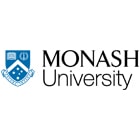- News and articles
- Find usIDP AustraliaIDP BahrainIDP BangladeshIDP CambodiaIDP CanadaIDP ChinaIDP EgyptIDP GhanaIDP Hong KongIDP IndiaIDP IndonesiaIDP IranIDP JordanIDP KenyaIDP KoreaIDP KuwaitIDP LebanonIDP MalaysiaIDP MauritiusIDP Middle EastIDP NepalIDP New ZealandIDP NigeriaIDP OmanIDP PakistanIDP PhilippinesIDP Saudi ArabiaIDP SingaporeIDP Sri LankaIDP Taiwan, ChinaIDP ThailandIDP TurkeyIDP UAEIDP VietnamIDP Corporate
- Social
- English
- Where we operate
- Courses
- Scholarships
- IELTS
- About IDP
- Student Essentials
- News and articles
- Find us
- Find us
- Find nearest IDP offices
- IDP Australia
- IDP Bahrain
- IDP Bangladesh
- IDP Cambodia
- IDP Canada
- IDP China
- IDP Egypt
- IDP Ghana
- IDP Hong Kong
- IDP India
- IDP Indonesia
- IDP Iran
- IDP Jordan
- IDP Kenya
- IDP Korea
- IDP Kuwait
- IDP Lebanon
- IDP Malaysia
- IDP Mauritius
- IDP Middle East
- IDP Nepal
- IDP New Zealand
- IDP Nigeria
- IDP Oman
- IDP Pakistan
- IDP Philippines
- IDP Saudi Arabia
- IDP Singapore
- IDP Sri Lanka
- IDP Taiwan, China
- IDP Thailand
- IDP Turkey
- IDP UAE
- IDP Vietnam
- IDP Corporate
- Social
- Language Switcher
- IDP Education /
- Colleges and Universities /
- Australia /
- Monash University /
- Bachelor of Arts and Bachel...


Location
Australia
Qualification
Dual Degree
Fees
AUD39000
(2025)
Duration
4 Year(s)
Next intake
28 July 2025
Entry Score
6.5
IELTSCourse info
International relations as a discipline was founded after World War I and has evolved over the course of the 20th and 21st centuries. However, its core purposes remain the same: to explain seemingly intractable global problems and the political nature of responses to them, and to consider whether there are global responsibilities. The discipline advances critical knowledge about the causes, consequences and challenges of mitigating conflict and promoting cooperation within and across states and societies. It is concerned with the relationships between international structures, processes and political institutions including states, non-government organisations (NGOs), social movements, and international organisations such as the United Nations and its specialised agencies, the World Trade Organisation, NATO, and the European Union. Concepts of power, sovereignty, security and the state are central to the subject matter of international relations. You are encouraged to develop critical thinking, creativity, team work, research-based learning and analytical writing skills in order to understand contemporary changes and historical continuities in international relations.
- Scholarships View all scholarships
- Internships
Entry requirements for Monash University
All Monash undergraduate courses require you to have successfully completed a minimum of an Australian Year 12 qualification (or equivalent) and achieve the required academic entry score. Most Monash faculties generally use your most recent studies for admission however other guidelines may apply where your prior qualification may be considered.
GCE A Level - 9
International Baccalaureate Diploma Programme - 28
Advanced Placement -7
IELTS - 6.5 (Reading - 6.0, Listening - 6.0, Writing - 6.0, Speaking- 6.0)
Paper-based TOEFL – 550 (Test of written English - 4.5)
TOEFL iBT -79 (Reading- 13, Listening- 12, Writing: 21, Speaking- 18)
Application Deadline
The application deadline isn't available Speak to an IDP counsellor for more detailed information
Further information
If you aren't eligible for the above entry requirements, you might ant to explore pathway options at Monash University. If you want to find out more, speak to our counsellors.
THE World Ranking
58th / 1250
THE World RankingWhat our students think
We’ve haven’t received any reviews for this institution yet.
Recommended for you
- THE World Ranking:251
- Associate Degree
- Newnham , Australia
- Next intake:07/2025
- Entry Score: IELTS 6.0
- AUD35753 (2025)
- THE World Ranking:251
- Associate Degree
- Hobart , Australia
- Next intake:07/2025
- Entry Score: IELTS 6.0
- AUD35753 (2025)
- THE World Ranking:251
- Associate Degree
- Hobart , Australia
- Next intake:07/2025
- Entry Score: IELTS 6.0
- AUD35753 (2025)
- THE World Ranking:251
- Associate Degree
- Hobart , Australia
- Next intake:07/2025
- Entry Score: IELTS 6.0
- AUD35753 (2025)
- THE World Ranking:251
- Associate Degree
- Newnham , Australia
- Next intake:07/2025
- Entry Score: IELTS 6.0
- AUD35753 (2025)
- THE World Ranking:73
- Dual Degree
- Canberra , Australia
- Next intake:07/2025
- Entry Score: IELTS 6.5
- AUD49400 (2025)
- THE World Ranking:73
- Dual Degree
- Canberra , Australia
- Next intake:07/2025
- Entry Score: IELTS 6.5
- AUD49400 (2025)
- THE World Ranking:73
- Dual Degree
- Canberra , Australia
- Next intake:07/2025
- Entry Score: IELTS 6.5
- AUD49400 (2025)
Your action plan
Step 1
Shortlist your courses
Choose the best three courses you’re most likely to pursue.
Step 2
Check your eligibility
Get an instant in-principle offer for courses with the IDP FastLane tag.
Step 3
Apply through IDP Live
Fill out the form once and use it to apply to multiple courses.
How does IDP FastLane work?
With the FastLane 'Offer in Principle', you'll know in minutes if you'll be accepted!
Select an institution and course
Create your academic profile
Submit your application for an 'Offer in Principle'
Your chosen institution(s) will send you a decision in minutes!
Get ready to apply with an expert counsellor




